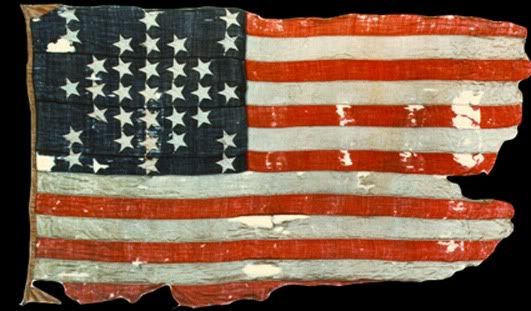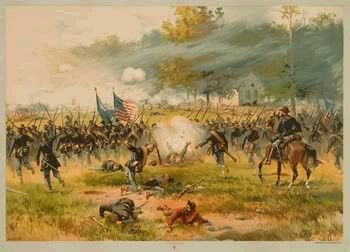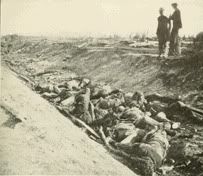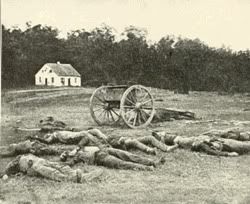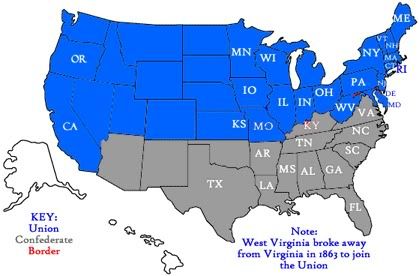Monday, August 24 2010
The silver-grey sedan strolled up to the front driveway of Robert E. Lee High School. It was a Monday, Chase hated Mondays, but then again who didn't. He had just arrived in the city of Tampa, Florida on Saturday to a "cool" 92 degrees Fahrenheit. Coming from the North, this was like a hellhole. You see, unlike the other four hundred-some students at R.E Lee High, Chase was different, he was an "outsider", a Northerner, a Yankee.
Chase waved good-bye to his Dad as he peeled the driveway into the main road, off to his first day at work,
'Good luck Dad,' he thought, Chase may be entering a whole new school, in a whole different country, in which he knew no one. But as usual Chase feared nothing, well nothing "social" that is. He always made friends, no matter where he went, he had the slick cool conscious that allowed him to relate to anyone. His Dad however, was a different story. We'll leave it at the fact that his mom asked his dad out on a date, due to a dare.
Despite his socially-awkward father, Chase made up for this ten-fold, he looked at the predominately white crowd, mixed in with Hispanics and Blacks. All of them doing things indistinguishable to what was done back "home". Laughing, talking about their weekend's, as well as flirting and some couples kissing.
Chase looked up and smiled,
"Yeah, I'll fit in just well" he allowed to slip from his mouth.
--------
Chase walked into the Main Office, a place where he admitted he would spend a lot of time at when he saw the principal's office. He walked up to the office secretary, a seemingly tall, blond headed woman in her fifty's who didn't seem to take crap from anybody.
Overhead, he could hear the sound of the television turned to the news.
"Today, Russian Imperial Peacekeepers, RIP for short, have mobilized, moving into Iraq, and Kurdistan in order to preserve the peace after the out breaking of hostilities last month between both countries. Despite the official Russian statements in wanting to preserve the peace and "avoid another Syria", many nations have denounced the invasions stating that that it is simply a ruse to forcibly bring both nations under the sphere of influence of the MittelEuropan Alliance."
"In other unrelated news, the German Empire has voted to kick Greece from the Eastern Economic Commonwealth due to its inability to deal with its defaulting of debts just last month, European markets are expected to take a dive as the many fear Italy and Hungary is next.
"Excuse me, ma'am? I'm new here just got arrived this Saturday, I was wondering if I could get my schedule." Chase asked pushing his long brown hair from his eyes.
"Of course, take a seat and I'll be sure to print that out in a second." She quipped without looking up from her computer, so much for Southern hospitality.
He took a seat, not the most comfortable chair, or the prettiest but whatever, couldn't take that long.
He was wrong....
The bell rang ten minutes later, the souls outside scattered to their classes and Chase attempted to not fall asleep in his chair, he hadn't gotten much sleep last night, not due to nerves, rather due to the unfortunate placement of his new home next to a house full of college students partying. If he heard "Party in the CSA" by that Cyrus chick one more time, he was gonna...
He allowed sleep to overtake him, only to awaken several minutes later by the secretary,
"Excuse me young man, what are you doing?", she said with an annoying whine he hadn't noticed the first time he spoke with her, "This isn't a motel, or nap time. Do you have any business here, other than to take up space?" she continued quickly, not even giving him the decency to look up from her computer.
Chase yawned and not looking for a fight, simply repeating his question,
"All I'm looking for is my class schedule, that's all I want." he said with a sarcastic grin.
"Oh, that, give me a minute." she answered, obviously not caring for an apology.
Whatever, Chase thought, of course he did hear her whisper underneath her breath,
"Stupid Yankee, coming in here thinking like he owns the place...."
The silver-grey sedan strolled up to the front driveway of Robert E. Lee High School. It was a Monday, Chase hated Mondays, but then again who didn't. He had just arrived in the city of Tampa, Florida on Saturday to a "cool" 92 degrees Fahrenheit. Coming from the North, this was like a hellhole. You see, unlike the other four hundred-some students at R.E Lee High, Chase was different, he was an "outsider", a Northerner, a Yankee.
Chase waved good-bye to his Dad as he peeled the driveway into the main road, off to his first day at work,
'Good luck Dad,' he thought, Chase may be entering a whole new school, in a whole different country, in which he knew no one. But as usual Chase feared nothing, well nothing "social" that is. He always made friends, no matter where he went, he had the slick cool conscious that allowed him to relate to anyone. His Dad however, was a different story. We'll leave it at the fact that his mom asked his dad out on a date, due to a dare.
Despite his socially-awkward father, Chase made up for this ten-fold, he looked at the predominately white crowd, mixed in with Hispanics and Blacks. All of them doing things indistinguishable to what was done back "home". Laughing, talking about their weekend's, as well as flirting and some couples kissing.
Chase looked up and smiled,
"Yeah, I'll fit in just well" he allowed to slip from his mouth.
--------
Chase walked into the Main Office, a place where he admitted he would spend a lot of time at when he saw the principal's office. He walked up to the office secretary, a seemingly tall, blond headed woman in her fifty's who didn't seem to take crap from anybody.
Overhead, he could hear the sound of the television turned to the news.
"Today, Russian Imperial Peacekeepers, RIP for short, have mobilized, moving into Iraq, and Kurdistan in order to preserve the peace after the out breaking of hostilities last month between both countries. Despite the official Russian statements in wanting to preserve the peace and "avoid another Syria", many nations have denounced the invasions stating that that it is simply a ruse to forcibly bring both nations under the sphere of influence of the MittelEuropan Alliance."
"In other unrelated news, the German Empire has voted to kick Greece from the Eastern Economic Commonwealth due to its inability to deal with its defaulting of debts just last month, European markets are expected to take a dive as the many fear Italy and Hungary is next.
"Excuse me, ma'am? I'm new here just got arrived this Saturday, I was wondering if I could get my schedule." Chase asked pushing his long brown hair from his eyes.
"Of course, take a seat and I'll be sure to print that out in a second." She quipped without looking up from her computer, so much for Southern hospitality.
He took a seat, not the most comfortable chair, or the prettiest but whatever, couldn't take that long.
He was wrong....
The bell rang ten minutes later, the souls outside scattered to their classes and Chase attempted to not fall asleep in his chair, he hadn't gotten much sleep last night, not due to nerves, rather due to the unfortunate placement of his new home next to a house full of college students partying. If he heard "Party in the CSA" by that Cyrus chick one more time, he was gonna...
He allowed sleep to overtake him, only to awaken several minutes later by the secretary,
"Excuse me young man, what are you doing?", she said with an annoying whine he hadn't noticed the first time he spoke with her, "This isn't a motel, or nap time. Do you have any business here, other than to take up space?" she continued quickly, not even giving him the decency to look up from her computer.
Chase yawned and not looking for a fight, simply repeating his question,
"All I'm looking for is my class schedule, that's all I want." he said with a sarcastic grin.
"Oh, that, give me a minute." she answered, obviously not caring for an apology.
Whatever, Chase thought, of course he did hear her whisper underneath her breath,
"Stupid Yankee, coming in here thinking like he owns the place...."


